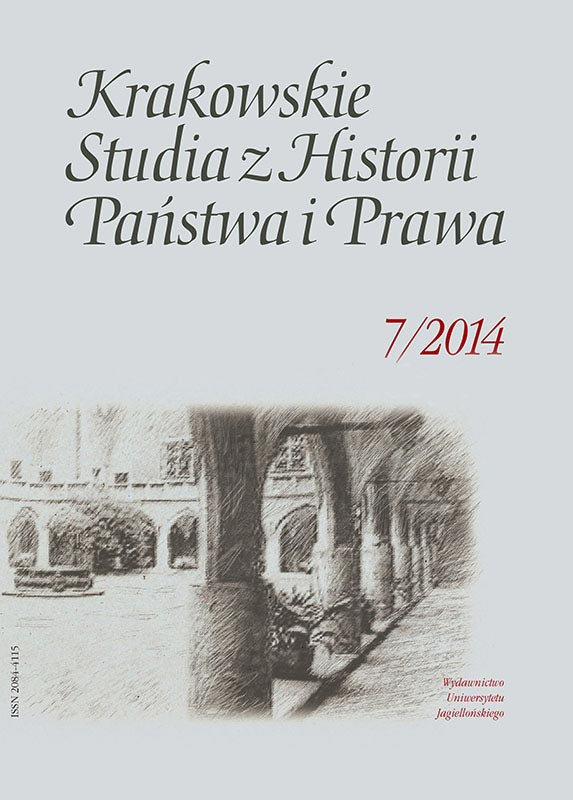Suum cuique is our Roman justice (Shakesp. Tit. Andr. 1,1,284) – William Shakespeare, Heiner Müller and Roman fundamenta
Suum cuique is our Roman justice (Shakesp. Tit. Andr. 1,1,284) – William Shakespeare, Heiner Müller and Roman fundamenta
Author(s): Paulina Święcicka Subject(s): Law, Constitution, Jurisprudence, History of Law
Published by: Wydawnictwo Uniwersytetu Jagiellońskiego
Keywords: justice; suum cuique; Roman law; drama; Shakespeare; Mülle
Summary/Abstract: The phrase suum cuique as an incarnation of “justice,” like many other Latin dicta, is deeply enrooted in the mental consciousness of mankind, and it lives its own life as a part of the so-called universal culture. Generally speaking, reference to Roman justice served and still serves as a justification of one’s own actions when such actions cannot defend themselves by their own formal correctness. It is, therefore, recourse to the eternal values, the understanding of which, however, is determined by one’s own experience or by experience of a particular epoch. This is proved by words of the authors mentioned in the title of the study, though separated from each other by several centuries and having different visions of the world, they considered the embodiment of this phenomenon in the phrase suum cuique as the most appropriate for their own narrative and judgmental description of the reality. Shakespeare, although he undoubtedly saw in Roman justice a guarantee of justification of certain actions, referred to this idea without a deeper analysis. Müller, one of the most important German dramatists of the second half of the 20th century, screaming through the voice of Tamora, who demands “Roman justice,” showed that a call for Roman fundamenta as well as for Roman iura et mores almost for the last time stands in the unsolved conflict with one’s own inhumane actions and inflation of all values that mankind has persistently considered as permanent.The article aims to analyse a cultural commentary on the use of the phrase suum cuique – a commentary understood as a way of bringing something that is analysed into the reality current for a commentator. In one dimension, this can be a dramatic comment rather than a simple description of a certain reality. Therefore, such a commentary should not be assigned only to a single commentator-narrator but to many who represent different eras.
Journal: Krakowskie Studia z Historii Państwa i Prawa
- Issue Year: 7/2014
- Issue No: 1
- Page Range: 169-180
- Page Count: 12
- Language: English

